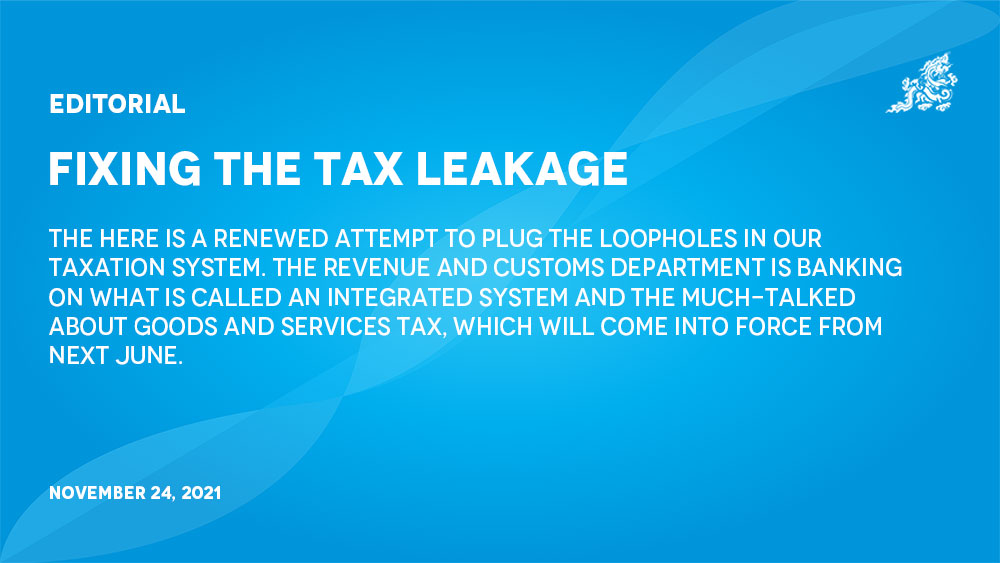The here is a renewed attempt to plug the loopholes in our taxation system. The revenue and customs department is banking on what is called an integrated system and the much-talked about Goods and Services Tax, which will come into force from next June.
This comes at a time when the government is running out of money and mulling to resort to borrowing in the wake of a huge fiscal deficit and rising debt, both external and internal. A reliable source of internal revenue, through taxes- both direct and indirect decreased by 16.1 percent or by about Nu 4.3 billion from the previous fiscal year. The drop in revenue was attributed to the impact of the pandemic and the fiscal and monetary policies initiated to mitigate the impact. Revenue from tourism dropped by 40.8 percent and from business income tax by 24.9 percent.
Taxing people during a pandemic that has disrupted the economy and livelihoods is unimaginable. It would be the most unpopular move of an elected government. However, two years into the pandemic, we have learnt lessons and are clearer how the pandemic has affected people.
While the call is not for new or increased tax, we have seen some making the most of the pandemic situation. Banks are feeling the heat of increased deposits with them. If they are sitting on more money, they will have to pay interest that eats into their profits. Perhaps, the pandemic closed investment avenues, but it is also a telltale sign of how some benefited more.
There are no figures, but we could surmise that average spending would have increased during the pandemic. While some got locked down for months, it would be no exaggeration to say that we have more choices for goods and services in the pandemic time. Suddenly there are showrooms for branded goods that until recently were available only during a study trip or conference in Bangkok or New Delhi.
Those who benefited should not evade tax. Take for instance the personal income tax. Next tax time, we should see more rental income declared. The waivers on interest, at the cost of the government coffer and His Majesty The King’s Kidu fund, benefitted all those borrowed. Amount of loans is bigger in the real estate business.
How rental income is taxed could be reviewed. It is one source of tax revenue that is full of holes. The mandatory house rent receipt is not helping as it is not tax deducted at source. If a tenant is not benefiting, he will listen to the landlord’s manipulation. Housing is a problem and landlords are the lords. One or two percent tax benefits on house rent paid could prevent evasion in millions of Ngultrums in taxes. It’s almost two decades since PIT started, we still do not have details on the number of buildings in the capital city.
Another flaw is in the exceptions. Exempting taxes on all small and cottage industries is a hurdle in inculcating a tax culture in the country. And then there are the tax holidays that need to be studied. Some manufacturing units started in the 1980s are still enjoying incentives while they have become super rich.
To put into context, tax foregone in 2019 was about Nu. 4.68 billion. It is increasing and was 2.6 percent of GDP last year. Business income tax is another area. We are still estimating taxes on small businesses by checking what is on the shelves. Most shops hide their goods when they know tax inspectors are on their way.
There is an urgency to reform our taxation policies. Seeing the rich people, poor country syndrome, development partners and donors are urging to increase tax collection and put in place more determined action to combat tax evasion or avoidance.


